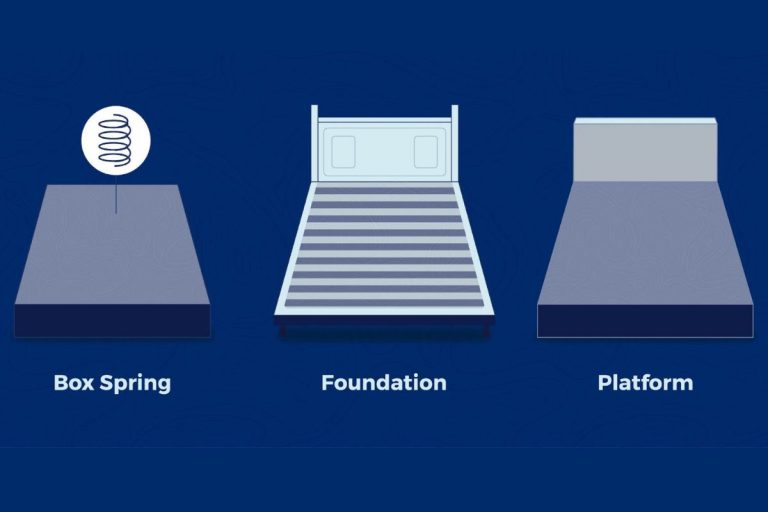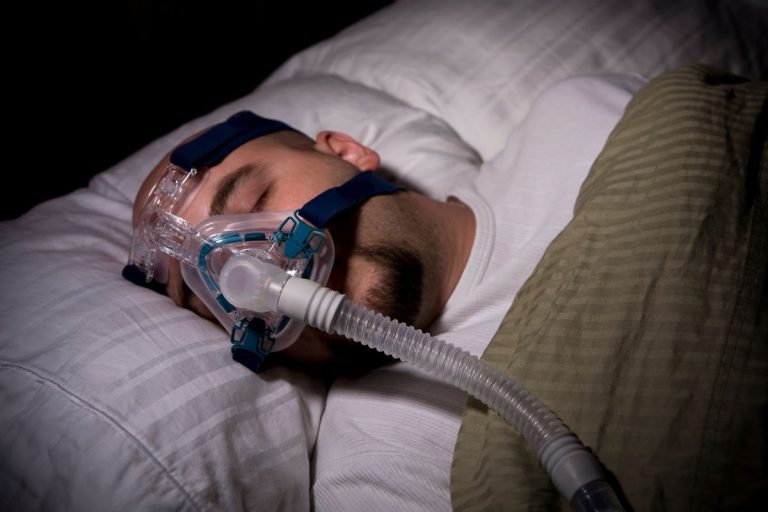Neuropathy is a medical condition characterized by chronic pain caused by serious nerve damage. Neuropathic pain is, therefore, often associated with frequent sleep disturbances, due to the worsening of the pain at nighttime. The sleep disturbances result in poor sleep, which further aggravates the pain levels, making the relation between neuropathy and sleep a vicious cycle.
Neuropathy pain and symptoms of the condition can be managed through pain relievers, painkillers, antidepressants, and different types of therapy. But, when it’s time to sleep, the pain simply becomes emphasized and overwhelming.
Therefore, in the following paragraphs, we’ll take a look at the relationship between the worsening of neuropathy at night and the sleep disturbances. If you suffer from neuropathy, hopefully, this article will provide the answers on why you experience such pain at night and what can you do to mitigate the effects of this truly damaging medical condition.
Why Is Neuropathy Worse At Night?
Whether you have a simple cold or a serious medical condition, they all have one thing in common; they somehow get worse at night and make getting enough sleep truly impossible. But, why does neuropathy in particular seemingly get worse at night? Here are some possible explanations for such a phenomenon;
- Decrease of hormone production occurs – one of the most plausible explanations is the one regarding the decrease in hormone production. The hormone in question is cortisol, which is also known as the anti-inflammatory hormone. At night, its production decreases, and so do its anti-inflammatory effects, making the pain worse.
- With fewer distractions, perception of pain changes – because at night the stimuli that are abundant during the day is no longer around us, our perception of everything changes. We become more focused on ourselves and closely listen to our bodies. Therefore, our perception of the pain becomes more pronounced, and the threshold for the pain we can manage simply lowers.
- The body temperature lowers before sleep – during bedtime, the body temperature naturally lowers for the purpose of lulling us into sleep. In neuropathic patients, the colder the body gets during the night, the more pronounced the pain they feel becomes, mostly due to the nerve damage. During the day, as one moves, the body temperature is higher and therefore helps us manage or even ignore the pain much easier. But, a good night’s chill can be a trigger for the pain, or just emphasize it more, and have it manifest in forms of tingling, or sharp, burning pain.
- Emotional and physical stress add to pain – stress that has accumulated during the day can add to the nerve pain during the night. For example, you did a strenuous workout, or you were working several hours overtime for the week; regardless of the cause of the stress, it adds up and makes your body sore, tense, and likely to enhance the already existing pain. That is why it is essential to take it slow if you have neuropathy; taking time to help the body recover from stress is important, regardless of whether it is physical or emotional stress that is in question.
So, just like with any painful condition, the pain seems to be worse at night. As previously explained, we either get more focused on the pain, have fewer distractions, or simply the nerve pain is triggered by cold.
Regardless of which scenario we’re talking about, neuropathy getting worse at night is surely causing some serious sleep disorders in the majority of patients.
Peripheral Neuropathy – Most Likely To Worsen During The Night
Peripheral neuropathy, also known as distal symmetric neuropathy, is the most common form of diabetic neuropathy. The pain with this condition affects feet and legs firstly, and then hands and arms, due to nerve damage. The symptoms of peripheral neuropathy include numbness, tingling, burning pain, sensitivity to touch, ulcers, infection, and bone/joint pain.
However, what is particularly interesting with peripheral neuropathy is that its symptoms significantly worsen at night, when compared to other types of the condition. Peripheral neuropathy especially reacts to changes in temperature, which are known to increase the pain levels.
The reason this happens lies in the damage of the peripheral nerves. These nerves are responsible for signaling to the brain whether it’s hot or cold, but also signaling to the brain whether something is causing pain. When peripheral nerves are damaged, the brain translates the changes in temperature as pain, which then causes the sensations of tingling, burning, and sharp pain.
The body experiences changes in temperature mostly during the night. As the circadian rhythm adjusts to the nighttime, and the melatonin production increases, the body temperature lowers in the hope to make us feel sleepy. That is when the body becomes cooler, and neuropathic patients start experiencing an increase in pain levels.
Neuropathy, Nerve Pain And Sleep Disorders
According to studies, the prevalence of sleep disturbances and disorders in neuropathic patients ranges between 50% and 80%. Sleep disorders are primarily related to the increase in pain levels during nighttime in the majority of chronic pain patients.
Even with proper treatment, medications, and therapy, neuropathic patients cannot simply decrease the pain intensity as the nighttime arrives. That is why the connection between neuropathy and sleep disorders is bidirectional; the pain prevents proper sleep, while the lack of proper sleep further aggravates neuropathy.
Patients that suffer from neuropathy are more likely to develop sleep disorders. Studies have shown a direct association between neuropathy and insomnia, restlessness, sleep fragmentation, etc. It is believed that antidepressants, opioid receptor agonists, and serotonin can reduce pain-related sleep disturbances in both depressed and non-depressed patients. That is why neuropathic patients are often prescribed antidepressants to reduce nerve pain levels and improve their sleep quality.
Neuropathy And Sleep Apnea Syndrome
Because chronic nerve pain intensifies during the nighttime, so does the chance of further health deterioration increase. The reason we mention this is because nerve pain or neuropathy during nighttime can be worsened by the development of sleep apnea syndrome, or obstructive sleep apnea.
Studies show that more than 40% of diabetic neuropathy patients develop sleep-disordered breathing due to neuropathy and increased pain levels during the night. Neuropathy in diabetic patients is characterized by a higher BMI, as well as by the presence of serious sleep complaints, which further aggravate both the neuropathy and sleep apnea.
Type 2 diabetic patients with peripheral neuropathy are most likely to experience higher pain levels, decreased sleep efficiency, and sleep apnea. Alongside the regular neuropathy treatment, these patients are offered the help of CPAP machines, which are designed to provide breathing assistance during the night.
How To Relieve Nerve Pain At Night For Better Sleep?
- Maintaining a healthy sleep pattern – chronic sleep deprivation can aggravate neuropathic pain. Moreover, it may increase the risk of high blood pressure, which also increases nerve pain levels. This can be handled by maintaining a healthy sleep pattern as much as possible. This means that one should go to bed at normal hours, avoid staying up all night, avoid exposure to blue lights before bedtime, and avoid drinking before bedtime as well.
- Changing sleep positions – studies show that by changing sleep positions, neuropathic patients can reduce pain levels and improve the quality of their sleep. By reducing the pressure on the nerves, for example, while sleeping, one can reduce pain in the limbs and feet. Some of the recommended sleeping positions include sleeping on the back with elevated feet or a pillow under the knees, sleeping on the side with a pillow between legs, or sleeping in a recliner.
- Stress reduction – as mention before, the stress accumulated during the day can increase the nocturnal neuropathic pain. So, it is essential to reduce day-to-day exposure to stress, either through counseling, visiting nature, or spending time with friends and family. Drinking tea can also help lower stress at night, and potentially even induce sleep. We recommend you try chamomile tea several hours before bedtime.
- Reducing daytime nerve compression – sometimes daily activity can result in unnecessary nerve compression, which at night increases pain levels. So, if you can, avoid strenuous workouts, and excessive walking to reduce nerve compression in the legs and feet. Try using a walker or wheelchair to reduce nerve compression in the spine. This should help alleviate nighttime pain and make it easier to get some sleep.





